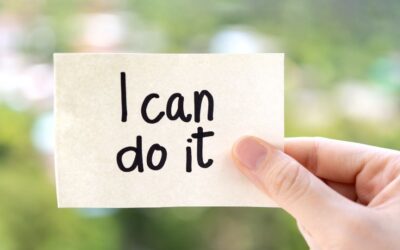Building Personal Resilience
The Japanese proverb, ‘Fall seven times, stand up eight’ has often inspired me not to give up when life throws me a curveball. But it’s not only persistency of effort that constitutes resiliency, there are other aspects that I was reminded of this week at a Books at Breakfast event at the Institute of Directors in London. The speaker, Judith Rodin, a renowned economist and philanthropist and President of the Rockefeller Foundation, shared her insights and recommendations on building resiliency within organisations.

Judith, author of The Resilience Dividend, talked of organisations that have maximised so much for leanness and efficiency, that when one piece of their carefully crafted puzzle goes missing, they find themselves vulnerable and exposed and less able to adapt.
She contrasted this with organisations that haven’t put all their eggs in one basket, but rather scenario-planned around potential catastrophes in the good times, to ensure sustained resilience when things don’t go according to plan.
The more I listened, the more parallels I drew between Judith’s suggestions for organisational resiliency and what we can do as individuals to bolster ourselves for stormy weather. And as resilience is a learned skill, here are my thoughts on what we can do to build it.
Anticipate, but don’t panic
Anticipating what might go wrong in a certain situation can be helpful in preparing you for a different course of action.
“Hoping for the best, prepared for the worst, and unsurprised by anything in between.” – Maya Angelou
Just be sure not to over dwell on what might go wrong as this can paralyse you with fear and mean you never actually get to where you need to be. Keep things in perspective. Simply having a Plan B up your sleeve means you can relax, trusting you’ll be OK if things veer off track.
Know your slow-burning stressors
This was something that Judith referred to within organisations, but it’s so true for individuals too. What stresses us often creeps up over time. The later and later working hours, the constant low hum of noise from the neighbours, the niggling pain in your neck from too much computer work, the lack of help with household chores, the friend letting you down for the umpteenth time. Become aware of what might be bubbling under your surface, and tackle it now.
Trust your own resourcefulness
“You can’t stop the waves but you can learn to surf” – Swami Satchidananda
It’s natural to slip into flight, fight or freeze mode when something goes wrong. However, you will almost certainly have ways of addressing the problem, whether that’s your own ability to fix the issue or calling on the expertise of a friend or colleague.
There’s usually a solution to every problem. And if there’s not, then maybe it’s something to let go of anyway.
Use a crisis
So the doo-doo has finally hit the fan. It happens. Rather than ruminating over how terrible it all is, why not see what you can draw from the experience. How could this crisis be turned into a blessing?
“I never wasted a mistake.” – J.M.W. Turner
What has resulted that wouldn’t have been there had this crisis been averted? What can you learn from what’s happened that will make you stronger and more able to adapt next time?
Hit the refresh button
What gives you energy? What revitalises you? Find quick and easy things you can do that bring you back to a state of calm and inner strength.
“Sometimes the most important thing in a whole day is the rest we take between two deep breaths.” – Etty Hillesum, WWII Dutch Jewish diarist
It might be a few calming breaths, a saying to pep you up, a quick glance at a favourite holiday snap, or a few minutes to stretch at your desk.
Arm yourself with what works for you to get you back on track.
Bad things happen, but hopefully with practice you can move quickly from the initial fear-based reaction to a more resourceful place where you can adapt, respond and recover.
Keep calm and carry on!






0 Comments